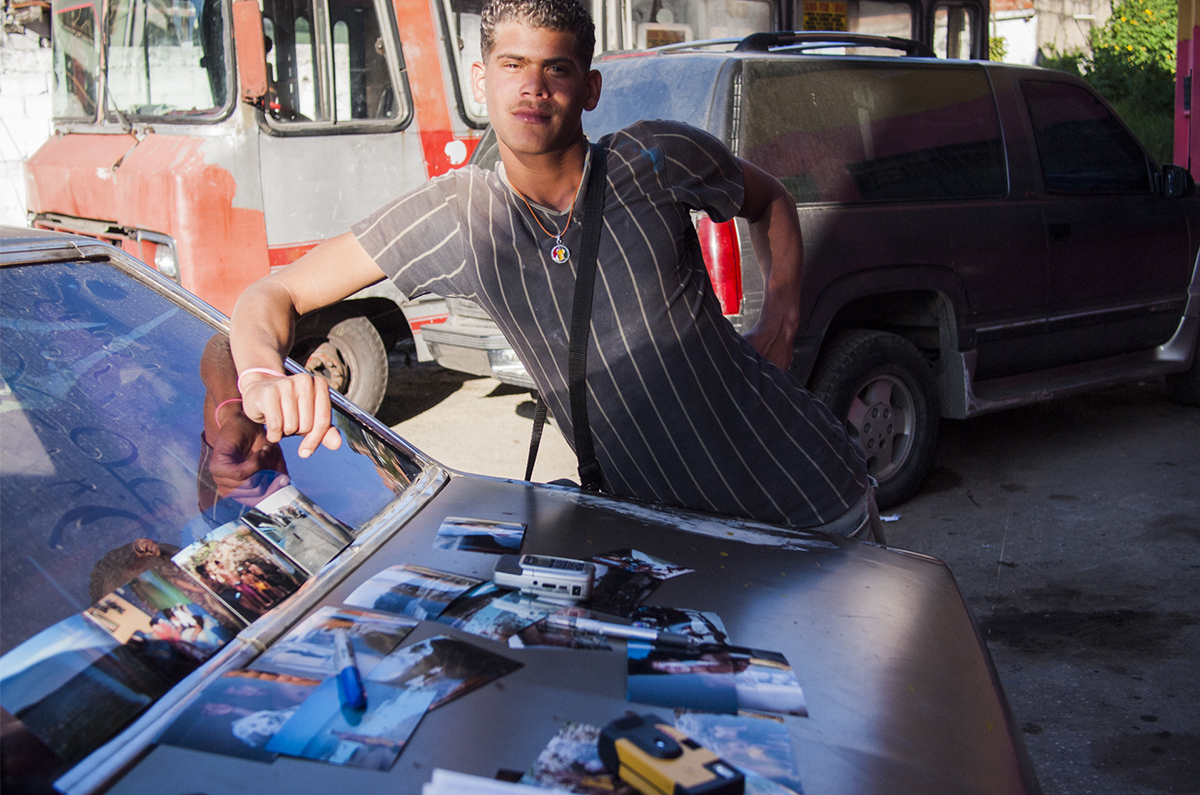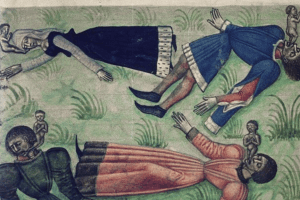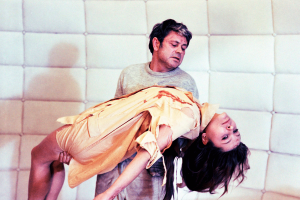A few months ago, we published «Wilmes and the Sea,» a text in which Diana Rangel tells us about the creative process behind Voces de un lugar imposible [‘Voices From an Impossible Place’.] The project combines clinical psychology and photography with the purpose of understanding the reality of young Venezuelans immersed in a context of violence. Wilmes, a young man from a slum called La Dolorita, was the protagonist of her work. She would give him a camera to photograph his daily life and then return it. Diana would go back to the slum with the printed photos, a voice recorder, and a series of questions to delve into Wilmes’ worldview, starting from the images he had taken.
The young man did not miss their meetings, in which he would sometimes apologize for his alcoholic breath. He spoke about his circumstances with raw honesty, as if immune to fear: «For me, the slum is falseness.» Survival was a word he kept at hand for regarding La Dolorita. His remarks hinted at a yearning for a serene place. It is likely that Wilmes had had a dark past and enemies, but he had begun to work in construction to move forward.
In early June, as Diana was finishing her graduate studies abroad, a friend from the slum wrote her: «Wilkins got killed.» Wilkins, whom we referred to as «Wilmes» to protect his identity, had been the victim of a gang of boys. His murder was not a culebra (a revenge, in street slang); rather, the perpetrators had been seeking to garner respect in the slum. Diana’s reaction was to call the others to calm them down: «You wanted to study violence, didn’t you? Well, there you have it. They killed a friend of yours. Don’t you feel like taking a gun now and killing the murderer?»
The risks that Diana Rangel took in order to develop Voices From an Impossible Place were quite high and well-known, but after hearing those phrases over the phone she reflected on violence from loss: «The impotence of watching how someone close to you gets murdered, I think is one of the strangest feelings of emptiness I’ve ever felt. Wilkins was the center and axis of my work; I spoke with him the most and he was one of the most committed. Not having him around, understanding that he no longer exists and that his departure was so quick, has been quite hard.»
It was inevitable to feel Wilkins close because there was a great deal of intimate truth in his photos. We can read his desire for being at ease in his testimony. He was just a kid that wanted out of what he was into. The act of capturing his reality, freezing it in time, seeing it in photographic paper, and talking about it with Diana allowed him an exercise in self-reflection and possible calmness.
Backroom Caracas deeply regrets Wilkins’s departure and reinforces its support to projects like these, made by those attempting to avoid the sharp corners of the Venezuelan reality.

















